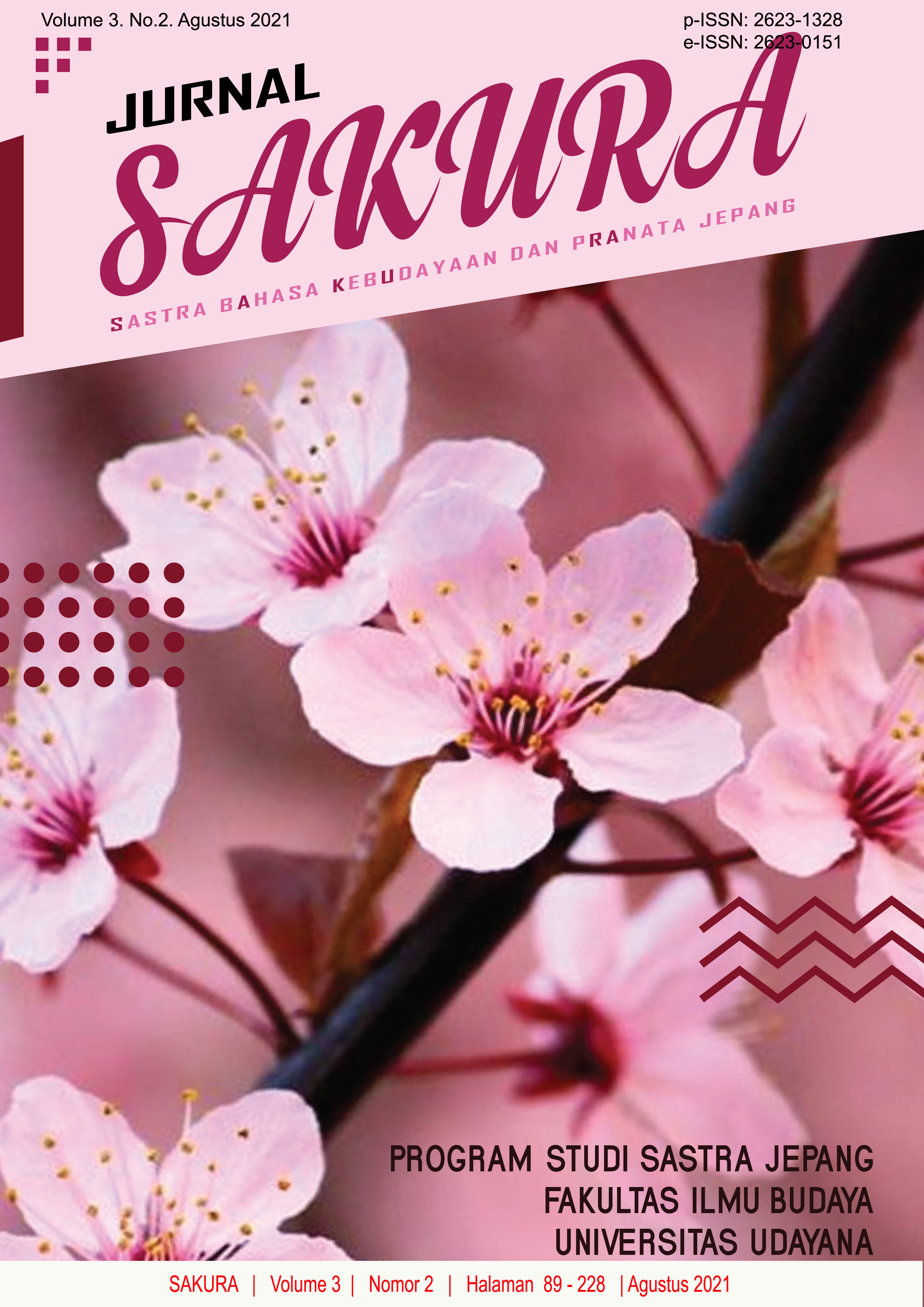Pengembangan Karakter Ikari Shinji Dalam Anime Neo Genesis Evangeliom
Abstract
This research discusses the character development of the main character Ikari Shinji from the anime Neon Genesis Evangelion. Neon Genesis Evangelion is an anime series directed by Hideaki Anno that tells the story of humanity's struggle against shitos using a giant robot called Evangelion. To interpret the character of the main character, the method used is descriptive analysis, and the analysis refers to Weiland's theory of character development. The results of the research show that Ikari Shinji at the beginning of the story has a ‘lie’ that he believes in, namely running away from problems. However, he has the capability to beat ‘the lie’. Throughout the story he gets the consequences of his ‘lie’, he also finds out the truth and what he actually needs. At one point he had to make a decision between the truth and the ‘lie’. The result was Ikari Shinji's old self becomes 'dead' after he made that decision. He left the ‘lie’ and proved that he had developed into a better person. The story’s ending is the answer to this anime thematic question.
Downloads
References
Lewis, C.S. (1960). The Four Loves, London: Geoffrey Bless.
Lewis, Jon. (2013). Essential Cinema: An Introduction to Film Analysis. Oregon: Oregon State University, 33-34.
Napier, S. (2002). When the Machines Stop: Fantasy, Reality, and Terminal Identity in "Neon Genesis Evangelion" and "Serial Experiments Lain". Science Fiction Studies, 29 (3), 418-435. Retrieved May 18, 2021, from http://www.jstor.org/stable/4241108
Ortega, M. (2007). My Father, He Killed Me; My Mother, She Ate Me: Self, Desire, Engendering, and the Mother in Neon Genesis Evangelion. Mechademia 2, 216-232.
https://doi.org/10.1353/mec.0.0010
Pasya, Muhammad Sultan, Isti Siti Saleha Gandana, Nia Nafisah. (2020). The Journey of the Villain: A Character Analysis of the Once-Ler from Dr. Seuss’ The Lorax. Passage2020, 8 (3), 107-121.
https://ejournal.upi.edu/index.php/psg/article/view/29876
Redmond, Dennis. (2010). Anime and East Asian Culture: Neon Genesis Evangelion. Quarterly Review of Film and Video, 24(2), 183-188. https://doi.org/10.1080/10509200500486205
Schopenhauer, Arthur. (1851). Parerga and Paralipomena: Short Philosophical Essays, Volume 2. Oxford: Oxford University Press, 33-34.
Taylor, Steven J., Robert Bogdan, Marjoire DeVault. (2015). Introduction to Qualitative Research Methods: A Guidebook and Resource, New Jersey: John Wiley & Sons, Inc., 7.
Weiland, K.M. (2016). CREATING CHARACTER ARCS The Masterful Author’s Guide to Uniting Story Structur6e, Plot, and Character Development, Scottsbluff: PenForASword Publishing.













